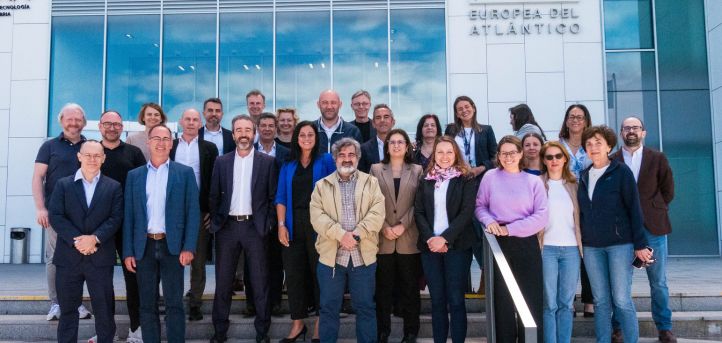The European University of the Atlantic is part of the project along with 12 other universities in Europe.
The European University of the Atlantic (UNEATLANTICO) hosted the first meeting of the members of the DIVERSE Alliance on May 14 and 15. Representatives of the 12 institutions participating in the project had the opportunity to get to know our facilities and their potential, and to coordinate the next actions to be carried out by the group. In addition to the establishment of an initial governance structure for the consortium, the first working groups were created, which will be focused on the creation of joint programs, inter-institutional communication, research, and the international mobility of the entire university community.
The so-called “European Universities” are part of the European Commission’s strategy to promote alliances between higher education institutions throughout Europe, for the benefit of their students, staff and society, and is implemented mainly through Erasmus+ funding.
Juan Luis Vidal, director of the International Relations Office (ORI) of UNEATLANTICO, Rubén Calderón, rector of the university, and the student delegate, Eloissa Basset, underline the importance of this initiative at institutional and academic level as it represents “a unique opportunity in terms of the international positioning of our young university, and from which our students can benefit in the short and medium term”.
Among its main benefits, this cooperation will allow students, doctoral students and staff to benefit from mobility opportunities (both short and long term) in the so-called European inter-university campuses; to use joint management structures and resources; and as an ultimate goal, to obtain a degree by combining studies in several European countries.
In the case of DIVERSE, 12 universities are members: Beykent University (Turkey); OHM Nurmberg and TH Rosenheim (Germany); Universidade Autónoma de Lisboa (Portugal); Satakunta University (Finland); Algebra University (Croatia); PXL (Belgium); George Emil Palade (Romania); Griffith College (Ireland); Windesheim University (Netherlands); SMK (Lithuania); and Universidad Europea del Atlántico (Spain).


